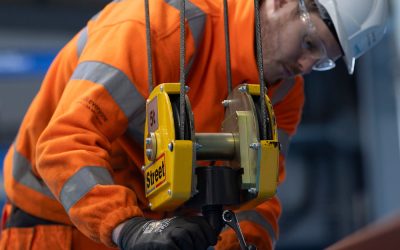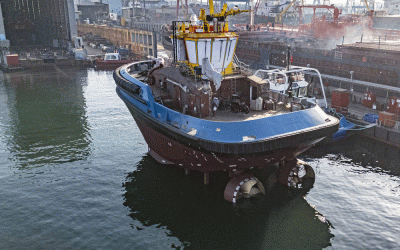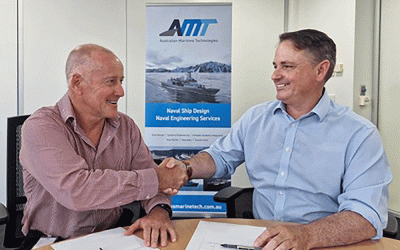Wuchang Shipbuilding has launched what’s been vaunted as China’s first ice-breaking beacon vessel, Haixun 156, which is set to commence operations in September. The vessel was ordered by the Tianjin Maritime Safety Administration and will be used to maintain, swap and remove navaids in ice-heavy ports / on navigation routes within North China.
The yard, which is an affiliate of China State Shipbuilding Corporation, commenced construction of Haixun 156 in April 2019, and she conducted her first sea trial in Wuhan in early Q2. The newbuild will be stationed at the National Security Center in Tianjin, which is responsible for the maintenance of all navaids within the Tianjin area.
Haixun 156 measures 74.9m x 14.3m and has a displacement of 2,400tonnes. The vessel can break through ice thicknesses up to 0.6m at a speed of 5knots, enabling her to adequately respond to emergencies during the region’s harsh winters.
Schottel has provide the beacon vessel’s twin diesel-driven SRE 460 EcoPellers, each rated 1,800kW and comprising a four-bladed propeller with a diameter of 2.4m. The ship has also been fitted with a Schottel STT1 TransverseThruster unit, rated 500kW.
“With this thruster configuration, Haixun 156 reaches a free sailing speed of 14.5knots,” Schottel says. The thrusters have been ice-strengthened to meet the requirements of Chinese ice class CC2, equivalent to Finnish-Swedish ice class 1B.





